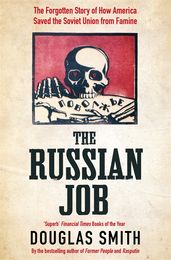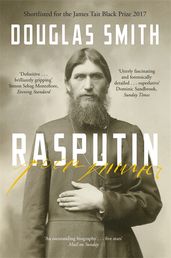Synopsis
Get lost in the labyrinthine life of Grigori Rasputin, an enigmatic figure that continues to puzzle historians to this day. Drawing on major new sources hitherto unexamined by western historians, Douglas Smith offers an unparalleled biography that exposes the mysteries and myths surrounding this extraordinary figure.
Rasputin. A horse thief and a hard-drinking ruffian in his youth. A devout Orthodox Christian – or a just a fake holy man. This book scrutinises the myths – of his debauchery and sexual exploits, his healing powers and uncanny influence over Russia's empress and emperor, and whether he manipulated the Russian government at his own behest, or under the influence of forces more sinister.
Smith scrutinises his murder and the players involved, with focus on Prince Yusupov and his fellow conspirators – questioning broader conspiracy theories involving British secret agents and Freemasons, and discussing the long shadow his murder cast over the Romanov dynasty.
Shortlisted for the James Tait Black Prize.
'The most comprehensive account of Rasputin to date, brimming with complexities and fascinating detail, and stands as an enlightening re-evaluation of this crucial figure in Russian history' – The Telegraph
Details
Reviews
Douglas Smith has delivered the definitive biography that is brilliantly gripping, as hypnotic, wild and erotic in its revelations as the Mad Monk himself, sensitive in its human portrait, astute in its political analysis, superbly researched with rich new material gathered in faraway archives, and populated with the zaniest cast of the deranged Romanovs, depraved bishops, whores, mountebanks, adventuresses, mystics and murderers.
The most comprehensive account of Rasputin to date, brimming with complexities and fascinating detail, and stands as an enlightening re-evaluation of this crucial figure in Russian history.
Douglas Smith begins this impressive biography by rubbishing almost everything previously written, stripping away a century of myth, fabrication, gossip and lies . . . a fascinating, often entertaining, biography.
Utterly fascinating and foreniscally detailed . . .There are plenty of Rasputin biographies already, but its superlative scholarship and attention to detail put this one in a class of its own.



